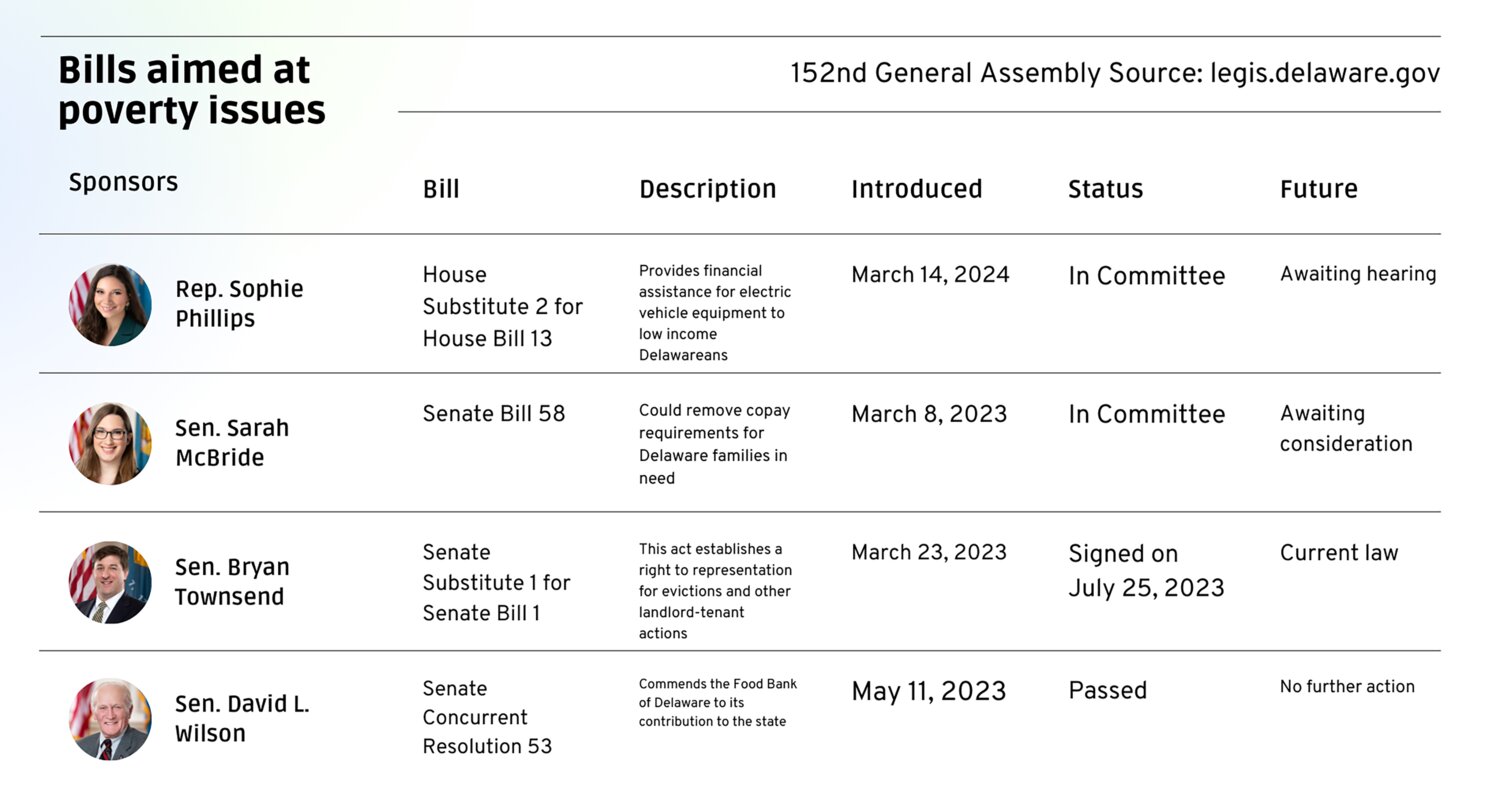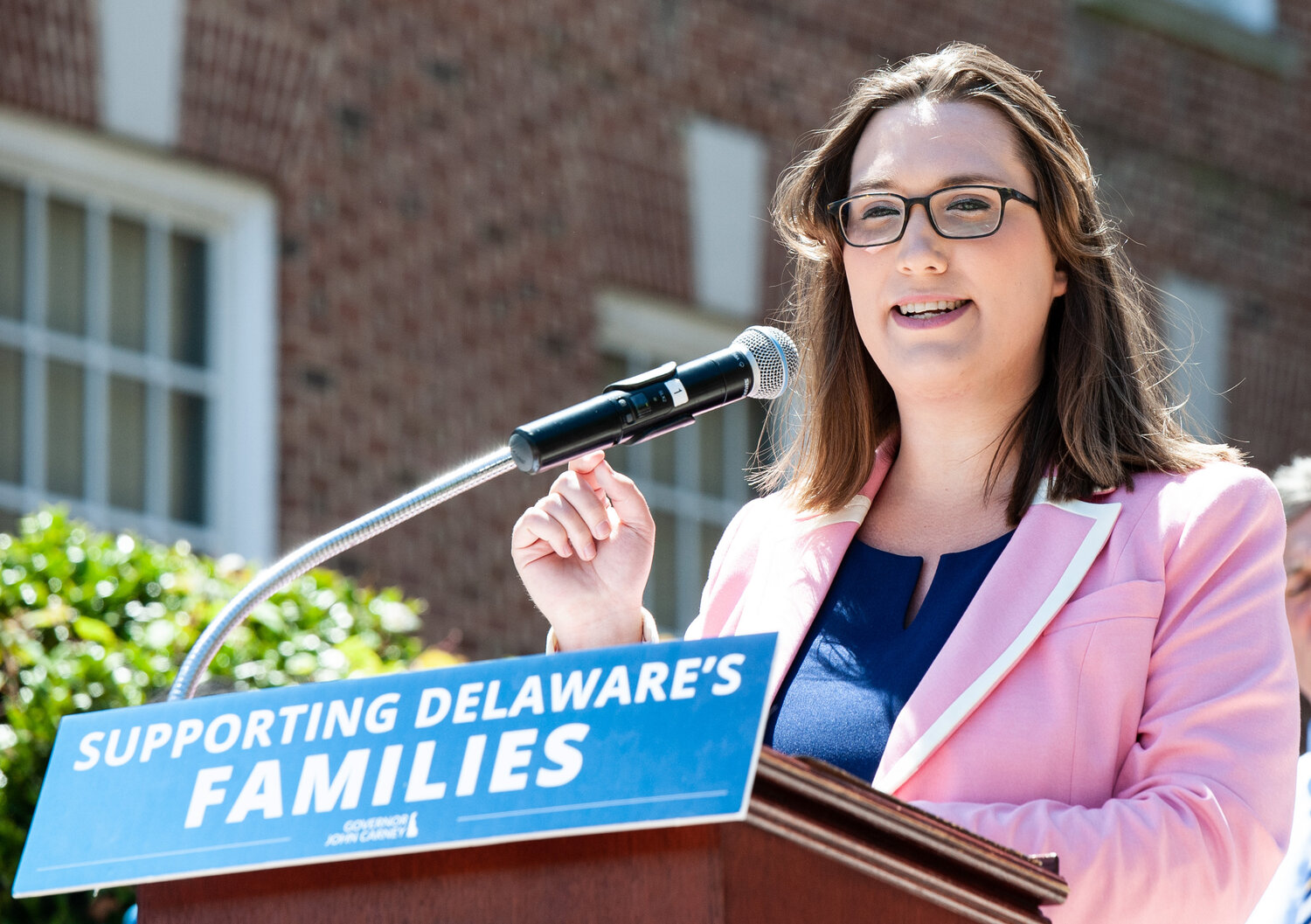Pulse of poverty: Steps taken by Delaware lawmakers but more effort needed
DOVER — In recent years, Delaware’s General Assembly has made strides to eradicate symptoms of poverty.
And, while many still face the challenges destitution brings, and others live …

You must be a member to read this story.
Join our family of readers for as little as $5 per month and support local, unbiased journalism.
Already a member? Log in to continue. Otherwise, follow the link below to join.
Please log in to continueNeed an account?
|
Pulse of poverty: Steps taken by Delaware lawmakers but more effort needed
Seeds of Need
Seeds of Need
DOVER — In recent years, Delaware’s General Assembly has made strides to eradicate symptoms of poverty.
And, while many still face the challenges destitution brings, and others live paycheck to paycheck with poverty in the rearview mirror, there have been significant legislative efforts to ease those burdens.
“There’s no question that, if you’re in Wilmington and statewide, far too many Delaware families are suffering under crushing costs, whether it’s the cost of housing, whether it’s the cost of health care, whether it’s the cost of day-to-day goods,” said Sen. Sarah McBride, D-Wilmington.
“Given the cost of housing, given the cost of health care, given the cost of child care, the security and opportunity that our state previously afforded folks remains inaccessible for far too many.”
One of the heaviest legislative lifts was passing paid family and medical leave, a policy that, once fully implemented, will provide eligible full-time workers up to 12 weeks of paid parental leave per year and up to six weeks of paid family caregiving, medical or military leave every two years.
The initiative was one of Sen. McBride’s focuses upon her election in 2020, as she was the bill’s prime sponsor and led the effort to its passage.
While the policy won’t go into full effect until Jan. 1, 2025, it has already encouraged many private businesses to offer the benefits.
“(Employers are) already increasing the pay when folks are out on leave to comply with the law. They’re already increasing the number of weeks that a worker might be eligible to take when they’re welcoming the child into their family, and so, we are already seeing more and more Delawareans gaining access to this critical and lifesaving benefit,” Sen. McBride said.
Prior to this measure, taking leave would put working families in a catch-22: tending to their loved ones in a time of need or missing work. Such situations can cause a financial ripple effect in a number of ways.
One is the cost of child care. While Delaware offers purchase of care — a program that provides support to families who need assistance paying for such services — many may not qualify due to its requirement of a gross household income equal to or less than 200% of the federal poverty level.
But two existing proposals, introduced in March 2023 and awaiting further consideration in the Senate, seek to even the playing field.
Senate Bill 59, sponsored by Sen. Kyle Evans Gay, D-Talleyville, would require the state to pay purchase-of-care rates consistent in each county. Sen. Evans Gay is also serving as a leading co-sponsor to Sen. McBride’s Senate Bill 58, which would remove program copayments for families that earn up to 200% of the federal poverty level.
“We need to make sure that child care is truly affordable and accessible for every family regardless of their income,” Sen. McBride said. “In many instances, child care costs more than a mortgage for a family, so there’s a need to expand purchase of care to cover more families to reduce out-of-pocket expenses.”
In continuing attempts to assist working families, the state passed a gradual minimum-wage increase in 2021. It has incrementally risen minimum pay since then, culminating at $15 per hour in 2025.
Upon that bill’s passage, Gov. John Carney said, “Delawareans who go to work full time shouldn’t be living in poverty,” which was echoed by lead sponsor Sen. Jack Walsh, D-Stanton.
“It boils down to one core principle: Someone who puts in a hard day’s work deserves to earn enough to keep a roof over their head and food on the table. Frankly, they deserve what previous generations of low-wage earners have had — a living wage,” the senator stated in 2021.
The minimum-wage initiative was a monumental step in the General Assembly’s effort to ease fiscal burdens, but there are several conditions that continue to hamper residents’ ability to live comfortably, like housing — specifically, the lack of affordable options and rising rental costs.
Fifty-nine percent of Delaware renters cannot afford the fair market rate of a two-bedroom unit, while working 40 hours a week, according to the Department of Health and Social Services.
Further, 46% of low-income renters in the state are considered “cost-burdened,” defined as a renting household that spends more than 30% of its income on rent and utilities.
Such housing issues have spurred Sen. Russ Huxtable, D-Lewes, toward advocacy, even before his time in the legislature. It was evidenced during his first term, when he introduced several policy proposals related to housing, including Senate Bill 87, which became law last August and intends to promote affordable housing development by exempting the state portion of the realty transfer tax for these projects.
Delaware is short about 21,000 affordable housing units, according to statistics from the National Low Income Housing Coalition — a “huge barrier,” Sen. Huxtable said. He added that the lack of such residency for workers creates holes in other systems, like health care, education and business.
“The market, while it has been producing a lot of housing, it’s not producing the housing that our workforce needs,” the senator said. “This is why we need to think of affordable housing as an infrastructure need because it’s not only going to benefit the families; it benefits the economy and our health care system.”
These issues were underscored by then-Delaware State Housing Authority director Eugene Young during the agency’s fiscal year 2025 budget request to members of the Joint Finance Committee last month.
The director said the two largest factors contributing to the housing crisis are cost and zoning, as building permit trends show that many new units in Delaware are single-family detached homes, too expensive for numerous households.
Additionally, while housing problems do contribute to poverty levels, political policy experts like Dr. Ezekiel Ette, chair of Delaware State University’s Department of Social Work, say there are other areas to address to tackle the problem from the root.
Take education, he said, noting that, while approximately 88% of high school seniors graduated in 2022, according to the state Department of Education, the total of college-educated adults is about 32%.
“Education is the great equalizer,” Dr. Ette said. “You have housing, you have income, you have level of education; those are the kinds of things that contribute to keeping poverty alive in the state.
“We have to take a multipronged approach to not only housing but transportation, education, income and so much more. Generally, we all have to look at what we can do to better support individuals to address the cycle of poverty.”
Members and subscribers make this story possible.
You can help support non-partisan, community journalism.
Other items that may interest you







 By
By 



